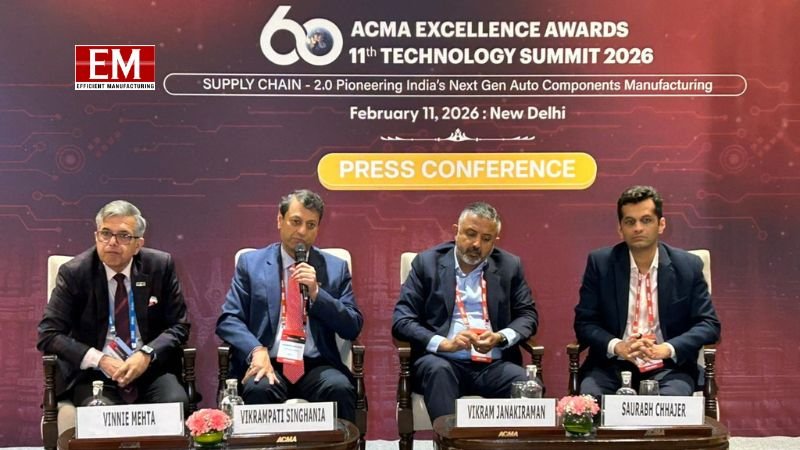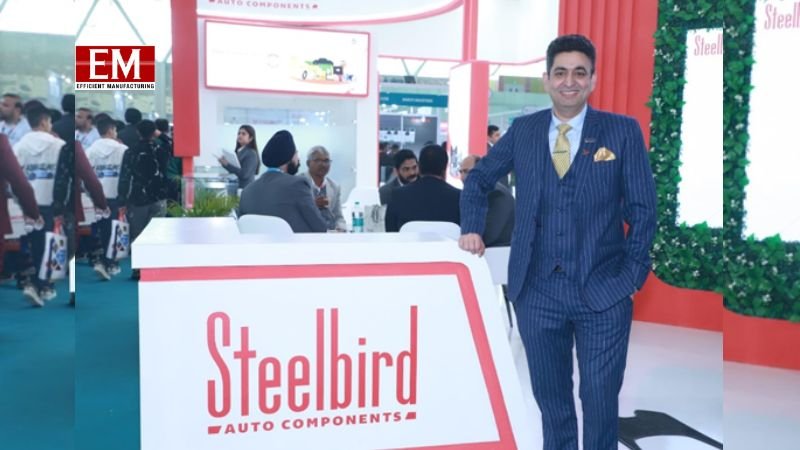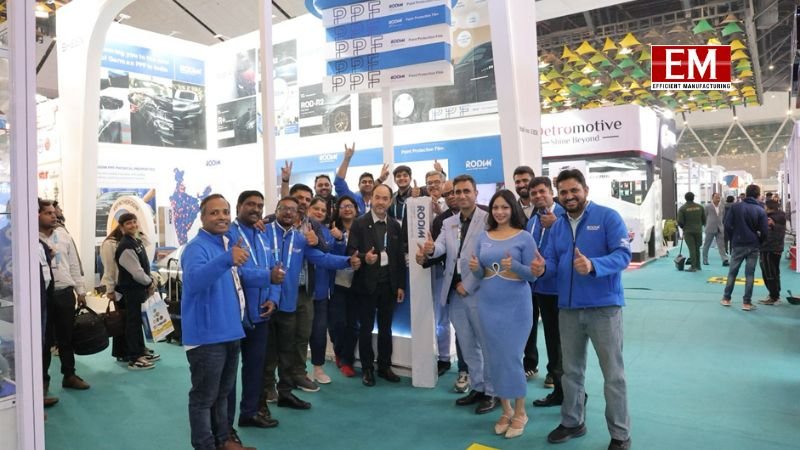| Over the past few years, the automotive sector has undergone a tremendous evolution. The major driving force of growth has been the coming together of Artificial Intelligence (AI), Machine Learning (ML) and the Internet of Things (IoT). Therefore, it is important for the industry to understand the impact of the integration of these advanced technologies.
Anudeep Garg,Head
Gurgaon Plant,
Continental Automotive India
With the introduction of Industry 4.0 technologies, traditional manufacturing processes are being combined with cutting-edge technologies. This is further reshaping the industries across the globe, and the automotive sector is no exception, thus transforming the overall landscape.
Industry 4.0 empowers manufacturers to achieve unprecedented levels of efficiency, flexibility, and productivity. The integration of AI and ML help with high level of trackability for downtime and error recognition and help in collecting significant amount of production data through information management systems.
AI and ML allow companies to take full advantage of the volume of information generated not just on the factory floor, but across their business units, and even from partners and third-party sources. They can create insights providing visibility, predictability and automation of operations and business processes.
AI, ML, and IoT in Automotive Manufacturing
Predictive Maintenance and Asset Optimization: Predictive maintenance is one of the key applications of AI and IoT in automotive manufacturing, completely revolutionizing how equipment and machinery are managed. Real-time data from embedded sensors can be leveraged to predict potential equipment failures using AI and this enables proactive maintenance, reducing downtime and extending the overall lifespan of critical manufacturing assets. This results in cost savings as there is an extension of the lifespan of equipment and improved operational efficiency as potential failures are predicted before they occur. The real-time monitoring of equipment status with The Internet of Things (IoT) is a key component of smart factories. Machines on the factory floor are equipped with sensors that feature an IP address that allow them to connect with other web-enabled devices. This mechanization and connectivity make it possible for large amounts of valuable data to be collected, analyzed and exchanged. IoT connectivity ensures remotely access to maintenance teams. This helps in making informed decisions without being physically present on the shop floor.
IoT sensors that are strategically placed on equipment collect real-time data across various parameters such as temperature, vibration, and pressure, providing an all-round view of the equipment’s health and performance. AI algorithms process the massive amounts of data generated by these sensors and advanced analytics and ML models identify patterns, anomalies, and potential signs of equipment deterioration. Accurate predictions are made as AI system learns from historical data. By detecting faults early and pinpointing root causes, corrective actions can be taken before a critical failure. Thus, AI-driven predictive maintenance optimizes the timing of maintenance activities as they are now tailored to the actual condition and usage of equipment.
Quality Control: AI and ML play a vital role in refining the production line’s quality control. Computer Vision systems that are powered by AI algorithms can analyze images and spot defects in real-time. This technology learns from vast datasets and can recognize even subtle deviations from standards. Since AI algorithms process visual data in real-time, immediate defect detection is possible during manufacturing. The accuracy of detecting defects is improved, thus, ML algorithms analyze historical data and can help predict potential defects based on patterns.
ML models constantly grow as they run into new data. This improves their skill to recognize and categorize defects accurately over time. This means that the system remains effective in addressing emergent challenges. IoT helps track the entire manufacturing process and can help in monitoring the journey of each component. This allows end-to-end traceability and facilitates quick identification of the defect source. False positives can also be reduced as ML algorithms will learn to distinguish between standard variations and defects. Automated defect detection fast-tracks the inspection process and increases the overall productivity. Furthermore, with the major reduction in manual inspections, human resources can be assigned to multifaceted tasks.
Supply Chain Optimization: With IoT integration in the automotive supply chain, there can be real-time monitoring of inventory levels, production progress, and delivery timelines. This data-driven approach cuts lead times, ensures better decision-making, reduces stockouts, and boosts the overall supply chain efficiency. Historical data can be analyzed by ML algorithms and demand fluctuations can be predicted. Proactive adjustments to production schedules and inventory levels are now possible.
Potential Benefits
AI and ML are changing the old-fashioned methods of vehicle prototyping and testing. AI algorithms along with power simulation platforms make it possible to predict how a vehicle will perform under various conditions accurately. This allows more efficient design iterations.
Challenges in Implementing AI, ML, and IoT
With automotive systems becoming even more interconnected, there is an exponential increase in the volume of data that is being generated and exchanged. Therefore, data security and privacy become a major challenge. Thus, cybersecurity becomes vital in this context. Cybersecurity solutions are essential for automotive companies for safeguarding data, connected systems, and intellectual property. To implement a robust cybersecurity strategy, encryption, secure communication protocols, threat intelligence, and regular monitoring are important.
With the advent of advanced technologies, the demand for highly skilled individuals is growing in tandem. Individuals must be capable of developing and implementing these technologies. Therefore, it is crucial for organizations to invest in upskilling and reskilling programs for their workforce. Thus, training programs focused on AI, ML, IoT, cybersecurity, can empower employees to adapt to the changing industry landscape and become the drivers of innovation. Companies can also actively collaborate with academia to further equip students with practical skills.
As multiple stakeholders are involved, ensuring seamless interoperability and standardization across AI, ML, and IoT systems becomes an issue. Therefore, it is essential to establish industry-wide standards and protocols. This will help create an efficient ecosystem where different technologies can work together in an interconnected manner.
Conclusion
AI, ML, and IoT integration is restructuring the automotive manufacturing and unravelling unparalleled prospects for innovation and sustainability. From predictive maintenance to smart manufacturing, the benefits are immense. It is only with the collaboration of industry stakeholders and continuous adoption that the impending challenges can be addressed. The future is all about data and AI, ML and IoT will help one make the best use of data in order to achieve efficiency, effectiveness and optimization in manufacturing.








